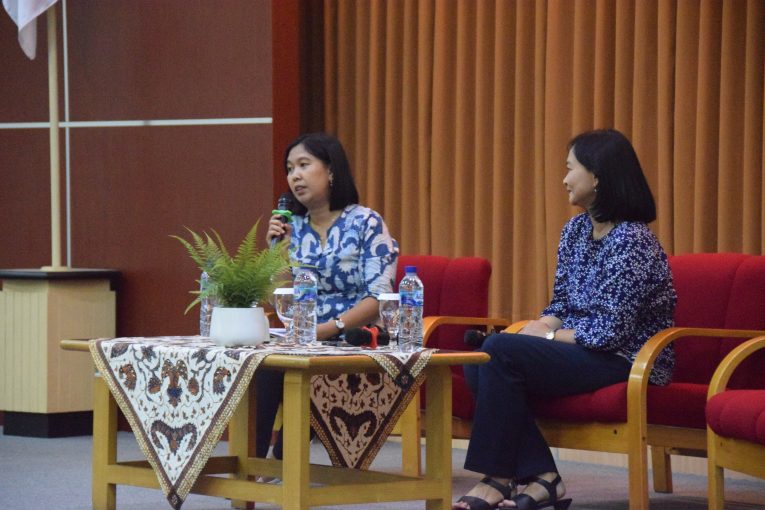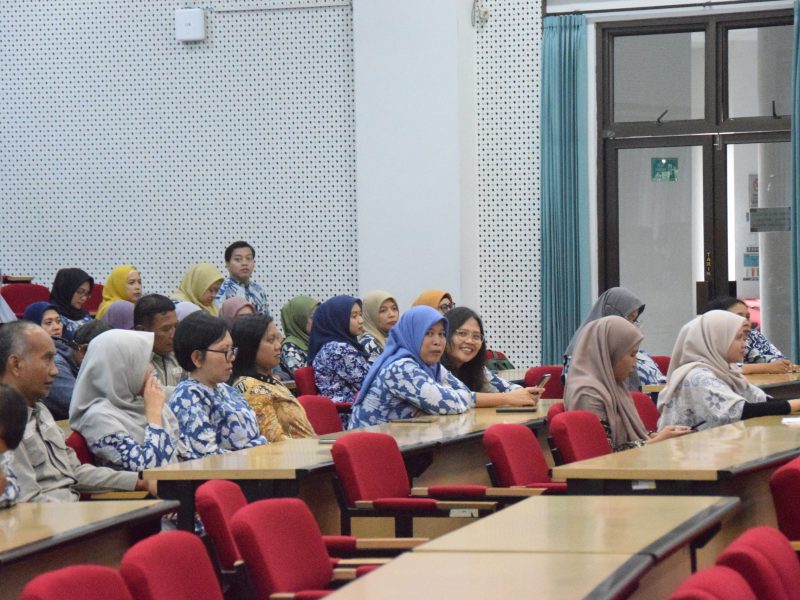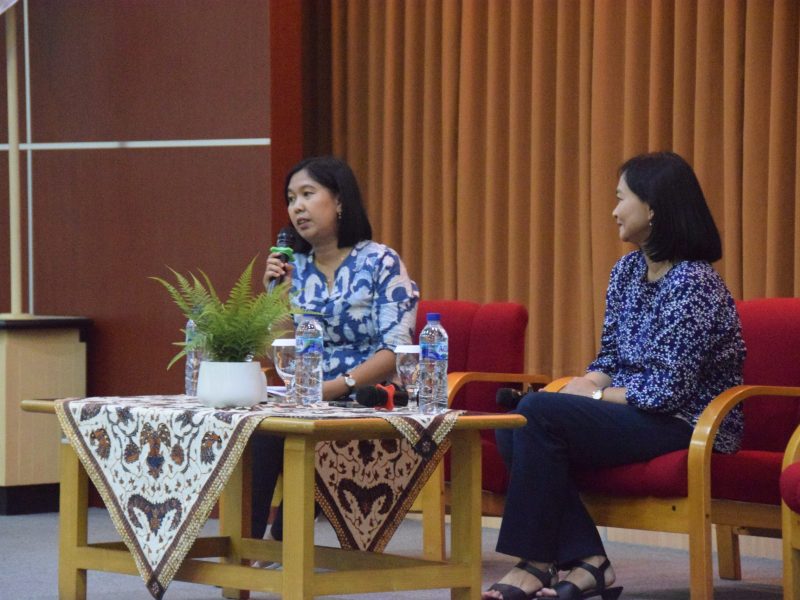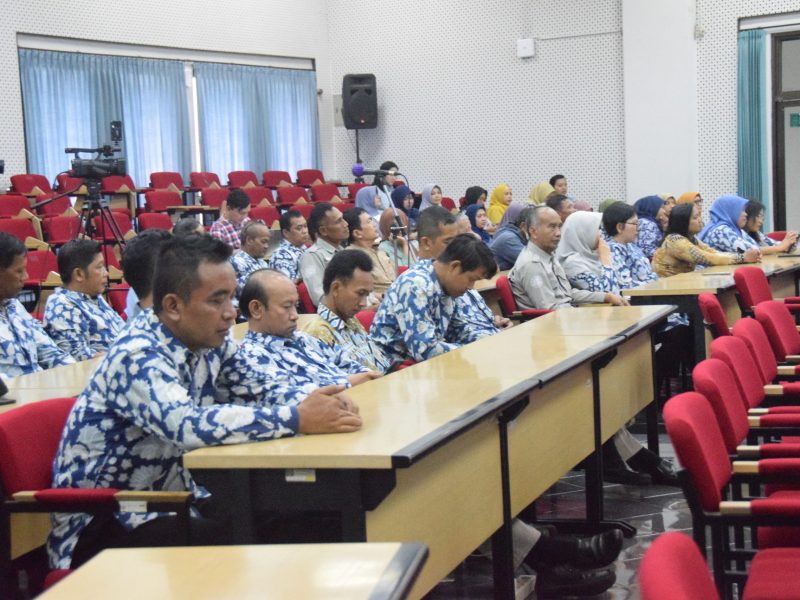
On Thursday (30/5), the Graduate School of Universitas Gadjah Mada (SPs UGM) organized a talkshow as a means of professional development for educational staff to enhance their understanding of smartphone and social media usage in the workplace and its impact on health. Held in the Auditorium, 5th Floor, SPs UGM, more than 60 educational staff members attended this event.
The talkshow was opened by Ika Krisnadewi, S.Psi., M.Sc., as the Head of Administration Office of SPs UGM. Ika conveyed that technology and social media are rapidly evolving, making it crucial for us to utilize them effectively. This event not only applies to the workplace but can also benefit staff in their role as parents, enabling them to monitor their children’s use of mobile phones and social media.
Diana, S.I.P., M.Ec.Dev., one of the staff members of SPs UGM, served as the moderator for this talkshow.
Dr. Ratna Noviani, M.Si., Chair of The Cultural and Media Studies Master Program of Graduate School of UGM, was the first speaker. Ratna explained that social media serves various functions in building internal relationships, one of which is facilitating communication and coordination among employees within the organization.
“In internal relations, the key is to nurture and manage relations with the internal public. We must establish good relations and communication to ensure a pleasant working environment. When employees are satisfied, the organization’s performance will be good both internally and externally,” said Ratna.
In the next session, SPs also invited Yustisia Anugrah Septiana, M.Psi., a clinical psychologist from Gadjah Mada Medical Center (GMC UGM), as the second speaker. Yustisia discussed ways to maintain health from the negative effects of smartphone usage.
Yustisia explained that smartphone usage has negative impacts on physical and mental health, such as reducing sleep quality, cognitive capacity, socialization skills, and causing mood and behavioral problems. Therefore, Yustisia provided several ways to limit smartphone usage to maintain a healthy balance.
“First and foremost, before opening the phone, we need to be aware of the purpose of using the gadget. Additionally, utilizing features to set screen time limits can be helpful. Thirdly, it is important to be aware of the possible emotions that may arise,” Yustisia clarified.
The talkshow was enthusiastically attended by participants. Active discussions from many educational staff members enlivened this talkshow. Various questions were raised, ranging from workplace issues to inquiries about how parents can effectively regulate their children’s gadget usage.
The talkshow concluded successfully. SPs UGM hopes that this activity can broaden the insights of every staff member in attendance.
Author: Muthia Nur Arifah
Keywords: SDGs, SDG 3: Good Health and Well-being, SDG 4: Quality Education, SDG 8: Decent Work and Economic Growth, Health, Mental Health, Access to Education, Basic Education, Skills, Professional Development, Decent Work for all, Human Capital, Human Capital Management, HCM, Employment, Sustainable Employment, Productivity



